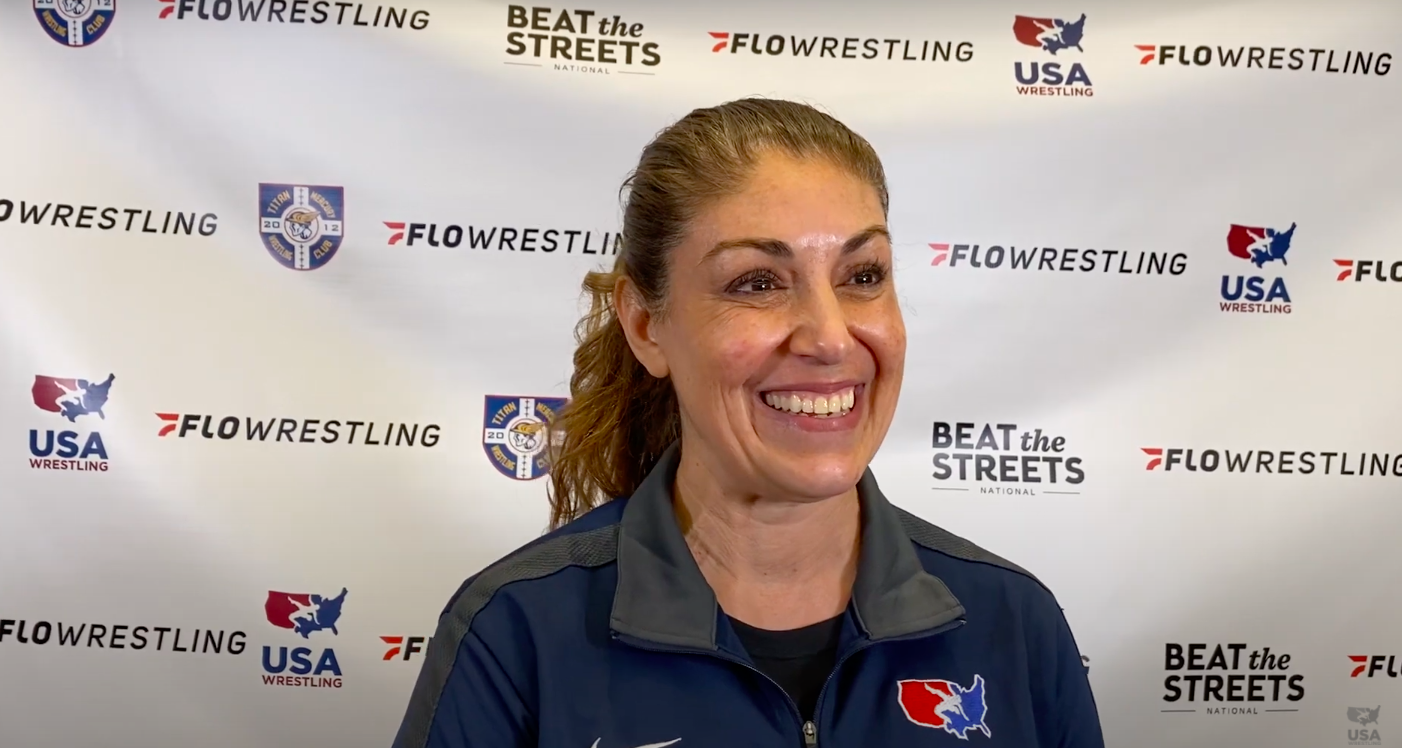After making history as the first U.S. medalist in women’s freestyle wrestling, Afsoon Johnston has set her sights on helping young generations. The Iranian-American world medalist and physical therapist retired from competition in 2000. Since then, she has continued to advance the sport and serve the wrestling community as a coach, ambassador of women’s wrestling and in medical capacity.
Johnston’s involvement in women’s wrestling continues to pave the way further for younger women, and cement her place as a pioneer in women’s wrestling. In 2014, Johnston was one of the U.S. Women’s World Team coaches. She helped lead that team to a third place finish and three individual medals in Tashkent. More recently, Johnston has coached Team Tamyra Mensah-Stock for the first women’s wrestling cup of its kind. She led that team to victory in the 2021 Captains’ Cup back in February.
From Iranian immigrant to the first U.S. medalist in women’s freestyle wrestling
Johnston’s journey in wrestling has its roots in her Iranian family. It started developing when Afsoon joined the wrestling team as a freshman at Independence High School. Back then, Johnston herself was coached by David Chaid, father of NCAA and U.S. Open champion Dan Chaid. Though training with boys at a time when girls rarely wrestled was a challenge, it was a rather insignificant one for Afsoon. After all, she had learned how to wrestle from her father in Iran, where women were not even supposed be spectators in wrestling.
In 1989, after four years of high school wrestling, Coach Chaid invited Johnston to a U.S. trials tournament, which was run by a pioneer in women’s wrestling, Lee Allen. Amongst the winners of that tournament, Johnston earned a spot on the U.S. team at 47 kg (103.5 lbs). Shortly after, she went to the 1989 World Championships. This marked the first time the USA assembled a women’s freestyle team.
Afsoon followed up her world bronze medal from 1989 with a silver medal in the World Championships next year. In the decade to follow these two world medals, Johnston won three U.S. Open titles, and brought home more medals from international events in Russia, Canada and France.
During this decade, she also started training younger cohorts. She began in the Phoenix area with the Sunkist Kids program. She retired from competition right before the International Olympic Committee added women’s wrestling to the Olympics. Then, she had her first son in 2001. However, Johnston continued her involvement in the sport as a board member on USA Wrestling committees.
Afsoon Johnston never thought wrestling with her father as a child would lead to historic accomplishments
Born in Iran as Afsoon Roshanzamir, Johnston learned how to wrestle at a young age from her father, Manu Roshanzamir, who was a wrestler. Though women and wrestling were not supposed to mix, Manu taught Afsoon wrestling moves at home. This sparked Afsoon’s interest in the sport. “We would wrestle in the living room and move the living room table,” she remembers. “And my dad would teach me technique and my mom would referee our matches.”
Manu went to study in Germany and Austria. While there, he also wrestled at European events. This gave Afsoon a preview of the international competition scene. After several more years in Iran, the Roshanzamir family moved to the United States, and eventually settled in San Jose, California in 1984.
There, Afsoon learned English. She also became a cheerleader at the Independence High School, where cheerleaders also kept statistics for the wrestling team. “When I started keeping stats for the wrestling team, I thought: I know this team, I know this technique and I can beat the current 98-pounder out there,” recalls Johnston. Though the coach had doubts that Afsoon’s father would approve of her wrestling with boys, Manu lent his full support.
Afsoon beat that 98-pounder and finished with a winning record after competing only against men for four years. She went on to study and join the team at UC Davis, and became one of the first female NCAA wrestlers.
Afsoon Johnston continues to inspire young women in the sport with her story, success and mentorship
Today, the trailblazing former wrestler is still in the women’s coaching pool, looking forward to working with more U.S. teams in the future, and inspiring and empowering youngsters through her involvement in Wrestle Like a Girl. Her remarkable journey as an American success story was recently chronicled by author Craig Sesker in the book titled after her first name.



